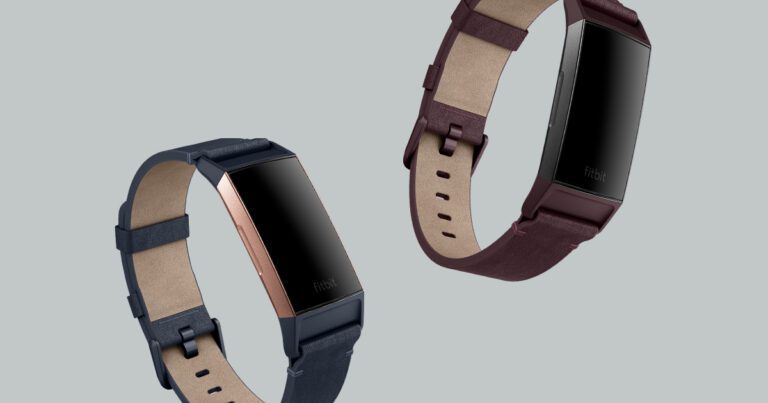6 Transformative Lifestyle Tweaks to Accelerate Your Injury Recovery
As we all know, recovering from an injury can be a daunting process: it requires patience and dedication and often involves making significant lifestyle changes. But what if there were simple tweaks you could make to your daily routine that could accelerate your injury recovery? That’s exactly what we’ll be exploring in this blog post.
We’ll dive into 6 transformative lifestyle adjustments that can aid in healing the body and mind during the recovery process. From diet and exercise to creating a supportive environment for relaxation, these tips are backed by science and proven to have a positive impact on injury recovery time.
Image source: Pixabay
Consult with a Personal Injury Attorney
If you’ve been injured due to someone else’s carelessness, know that you don’t have to face the aftermath alone. When you consult a PI attorney, you’ll be able to get the support and compensation you need to facilitate your recovery. Personal injury attorneys specialize in helping victims receive the justice they deserve by fighting for their rights and negotiating the best possible settlements. They’ll communicate with insurance companies and employ their legal expertise to ensure that you receive fair compensation for medical bills, lost wages, and other damages. If you’re struggling to get back on your feet after an injury, you must consider seeking the help of a personal injury attorney.
Prioritize Nutrition
Consuming a diet rich in vitamins, minerals, and proteins can significantly speed up the healing process. Foods packed with Vitamin C and zinc, for instance, are known to enhance the body’s ability to repair tissues while omega-3 fatty acids found in fish reduce inflammation. Similarly, proteins are essential building blocks for the body, repairing muscle and bone.
Focus on a balanced diet that supports your body’s healing needs. Including fruits, vegetables, lean meats, and whole grains can provide the necessary nutrients to aid recovery. Make sure to consult with a registered dietitian or your doctor for personalized nutritional advice.
Stay Hydrated
Dehydration can impair the body’s healing process, as it hinders circulation and nutrient delivery to injured areas. It’s crucial to drink enough water throughout the day, especially when recovering from an injury. The general recommendation is to drink about half your body weight in ounces of water daily.
If you find plain water hard to consume, try incorporating other hydrating beverages such as herbal teas, coconut water, or fruit-infused water. Aim to drink at least 8-10 glasses of water a day or more depending on your doctor’s recommendations. You may also need to increase your fluid intake if you’re taking medications that have a diuretic effect.
Get Adequate Sleep
Did you know that sleep is essential for injury recovery? During sleep, the body repairs damaged tissues and release hormones necessary for healing. Getting enough high-quality sleep can also reduce stress levels, which are known to hinder the recovery process.
Try to stick to a consistent sleep schedule and aim for 7-9 hours of quality sleep each night. If you’re having trouble sleeping due to pain or discomfort, talk to your doctor about possible solutions. Know that getting enough sleep is crucial for your body to heal and recover properly.
Adopt Gentle Exercise
It doesn’t matter if you’re recovering from an injury or simply looking to stay active without putting too much strain on your body, adopting a gentle exercise routine is a great option. Low-impact exercises such as walking, swimming, and cycling are fantastic ways to maintain your mobility and circulation without putting too much stress on your joints.
Based on your injury, your doctor or physical therapist may recommend specific exercises that are appropriate for your condition. If you engage in gentle exercise regularly, you can improve your overall health and well-being while reducing your risk of further injury. No matter what, listen to your body and not push yourself too hard while recovering.
Manage Stress
Chronic stress hampers your mental well-being while significantly slowing down injury recovery by weakening the immune system and complicating the body’s natural healing processes. Implementing stress management techniques such as mindfulness, meditation, and deep-breathing exercises can help in calming the mind and promoting a sense of well-being, crucial for recovery.
Even engaging in hobbies and activities can bring you joy can alleviate stress. It’s also beneficial to establish a supportive network of friends and family who can provide encouragement and help throughout your recovery. Managing stress is essential in promoting overall health and aiding in injury recovery.
Other Tips to Speed Up Recovery
In addition to the tips mentioned above, there are a few other things you can do to accelerate your injury recovery:
Follow Your Doctor’s Orders
Adhering strictly to your doctor’s instructions is paramount in the injury recovery process: it includes taking prescribed medications on time, attending all scheduled appointments, and engaging in recommended physical therapies.
Doctors and medical professionals provide tailored advice based on your specific situation, ensuring the most efficient path to recovery. They understand the intricacies of your injury and devise a plan that promotes healing while minimizing the risk of aggravation or re-injury.
Avoid Smoking and Excessive Alcohol Consumption
Smoking can significantly impair the healing process by reducing oxygen supply to injured tissues. Similarly, excessive alcohol consumption can hinder your body’s ability to heal and also interfere with any medications you may be taking.
If you’re a smoker, it’s an excellent time to quit or at least reduce the number of cigarettes you smoke per day. Consult with your doctor for support on quitting smoking. And if you drink alcohol, try to limit yourself to moderate consumption or avoid it altogether.
Practice Good Hygiene
Injuries make your body more susceptible to infections so it’s crucial to practice good hygiene to prevent any further complications. Keep your injury clean and covered with sterile bandages as recommended by your doctor.
Not to mention, it would help if you washed your hands regularly, especially before and after touching the injured area. Avoid sharing towels or other personal items that could introduce bacteria into the wound. By practicing good hygiene, you’ll minimize the risk of infection and promote faster healing.
Image source: Unsplash
Recovering from an injury is a multifaceted process that extends beyond physical healing: it requires attention to your mental well-being, lifestyle choices, and creating an environment conducive to healing. By incorporating these lifestyle tweaks, you’re setting the stage for a more efficient and positive recovery experience.
Each step you take, no matter how small it may seem, is a significant stride towards regaining your health and vitality. Listen to your body, stay committed to your recovery plan, and don’t hesitate to seek support when needed.





